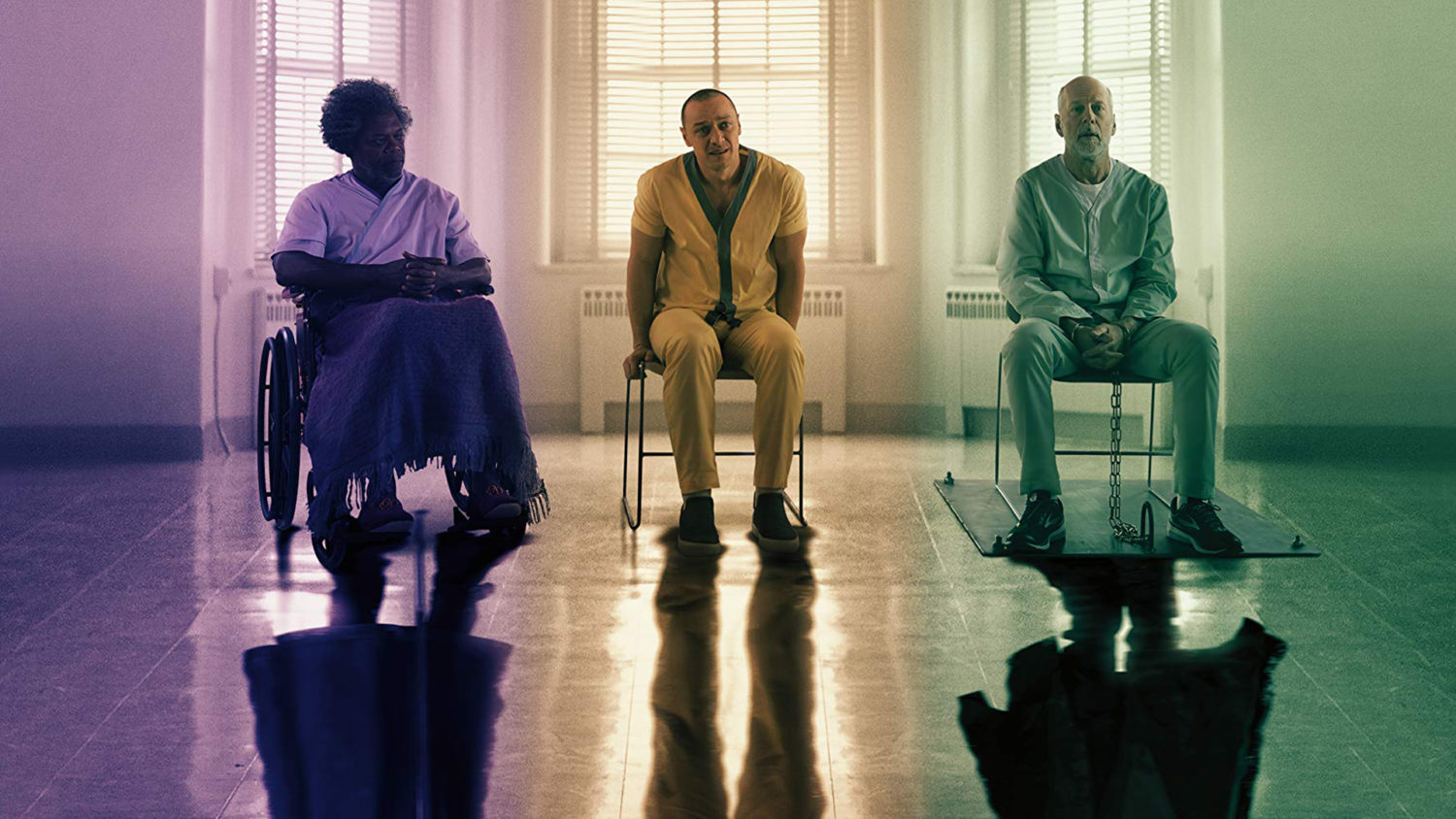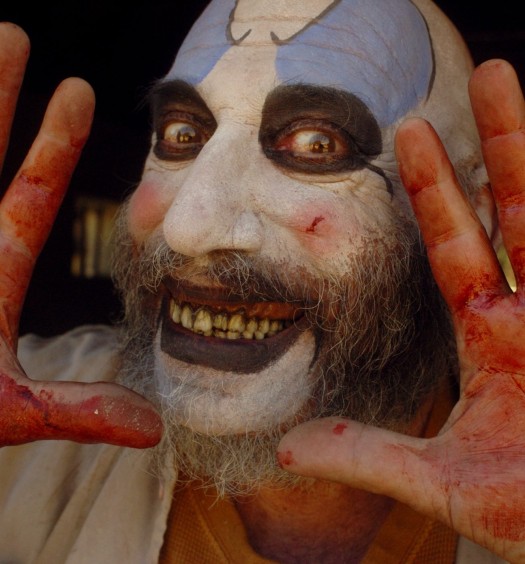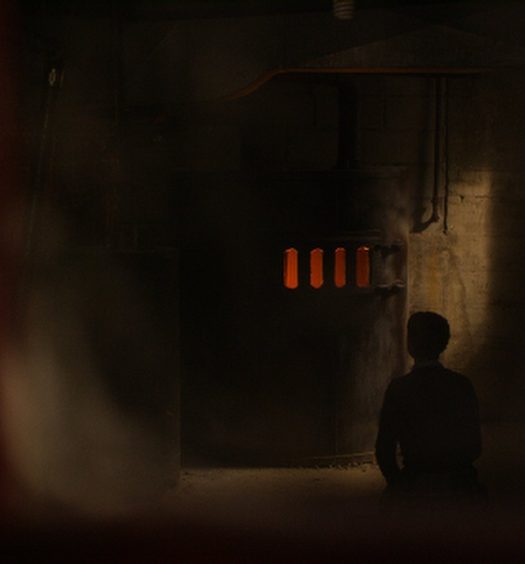There’s no easy way to discuss the conclusion to M. Night Shyamalan’s pseudo-superhero trilogy Glass because people are going to have Opinions about The Ending. Shyamalan supporters, who were eager to see his return to form with The Visit and Split—part two in the trilogy—will have to defend against Shyamalan’s detractors who dismissed the filmmaker after The Happening and other cinematic fumbles. That’s not to say Glass is as bad as The Happening or Lady in the Water because it’s not. Glass is a tight, thrilling conclusion to two stand-out films. This is Shyamalan’s world, making many of his idiosyncratic storytelling tendencies shine.
Glass brings together Davide Dunn (Bruce Willis, Unbreakable), Kevin Wendell Crumb (James McAvoy, Split), and Elijah Prince (Samuel L. Jackson, Unbreakable)—the hero, the villain, and the mastermind. At the beginning of Glass, Dunn, teased at the end of Split and exciting fans that the two share the same universe, is on a mission to track down Crumb, who’s holding four high school cheerleaders captive.
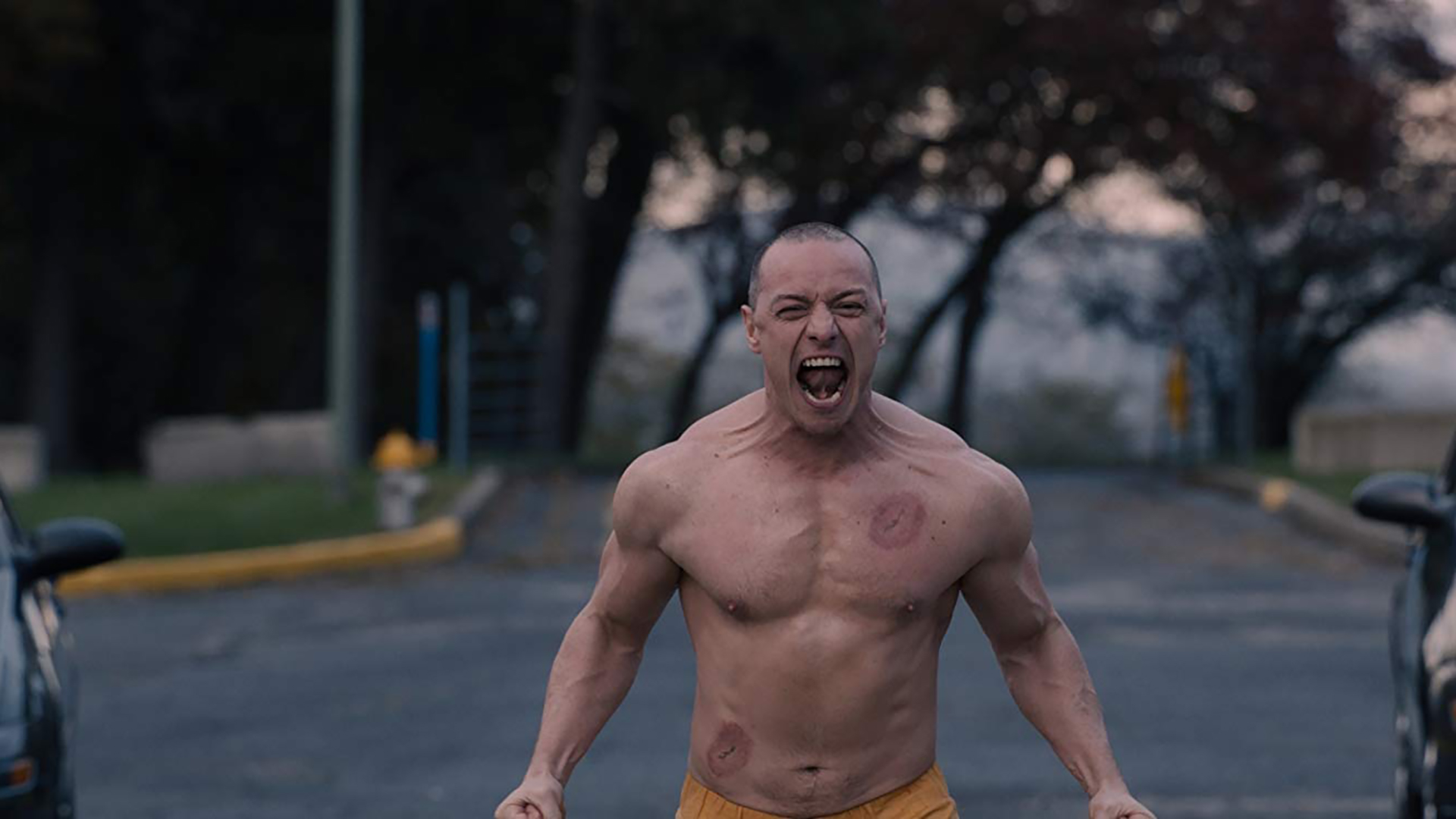
Glass a superhero movie grounded in Shyamalan’s artistic ethos.
The two end up in Raven Hill Memorial Hospital, the same hospital holding Prince. Here, Dr. Ellie Staple (Sarah Paulson) tries to convince the three they’re suffering from delusions of grandeur. However, Prince, who now goes by Mr. Glass, has other nefarious plans.
McAvoy’s performance as Crumb, who was abused as a child and formed an extreme case of Dissociative Identity Disorder with 23 distinct personalities ranging from the nine-year-old Hedwig to the prim and proper Patricia, is again outstanding in the movie—even more so than in Split. There’s little doubt McAvoy steals every shot he’s in as he quickly flashes through several personalities within a single scene. It’s criminal his performance in Split went unnoticed by the Academy and it’ll again be disappointing if he receives few if any accolades for reprising the role in Glass.
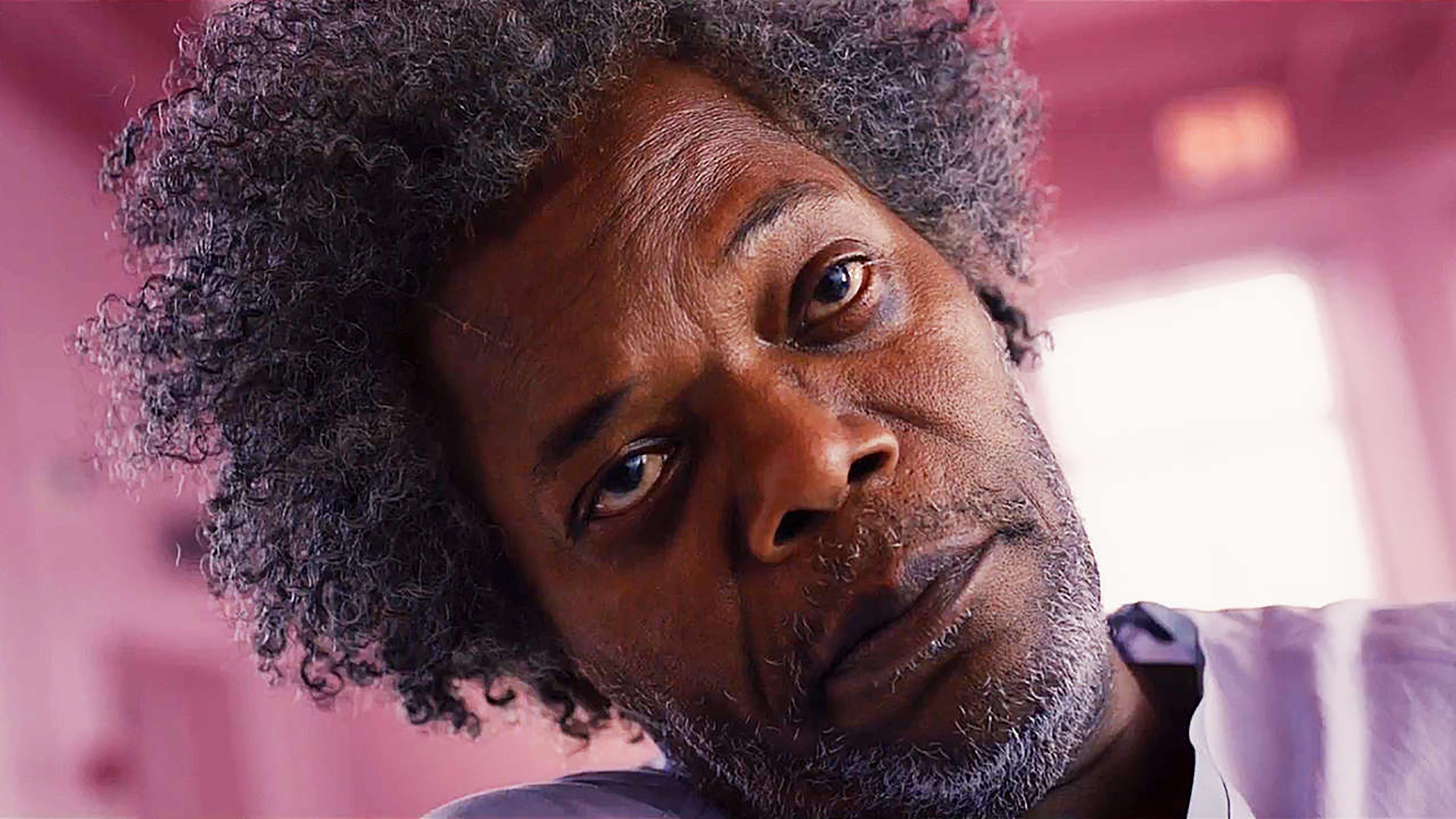
Glass is a tight, thrilling conclusion to two stand-out films.
Willis’ portrayal of the reluctant hero feels forced, considering he’s been using his powers between Unbreakable and Split/Glass to deliver vigilante justice while Jackson’s performance of the hyper-intelligent mastermind is underutilized.
Audiences unaccustomed to Shyamalan’s brand of storytelling could have trouble accepting the ending of Glass. However, it’s not a far departure from tone, storytelling, or presentation found in both Split and Unbreakable. Shyamalan’s trademark twist punctuates the final scenes, but if you’ve enjoyed the previous two entries in the trilogy, then Glass will feel natural in the way it concludes. It’s best to understand this isn’t a comic book movie. Glass a superhero movie grounded in Shyamalan’s artistic ethos.
Glass feels organic in its story, yet familiar with our superhero expectations. If you look closely enough, you’ll find plot holes—but superheroes already exist in this movie universe. Unexpected plot points coming out of left field is the trilogy’s modus operandi. Audiences have bought this far into Shyamalan’s world of grounded superheroes, and Glass provides an ending that fits, even if some may not like it.
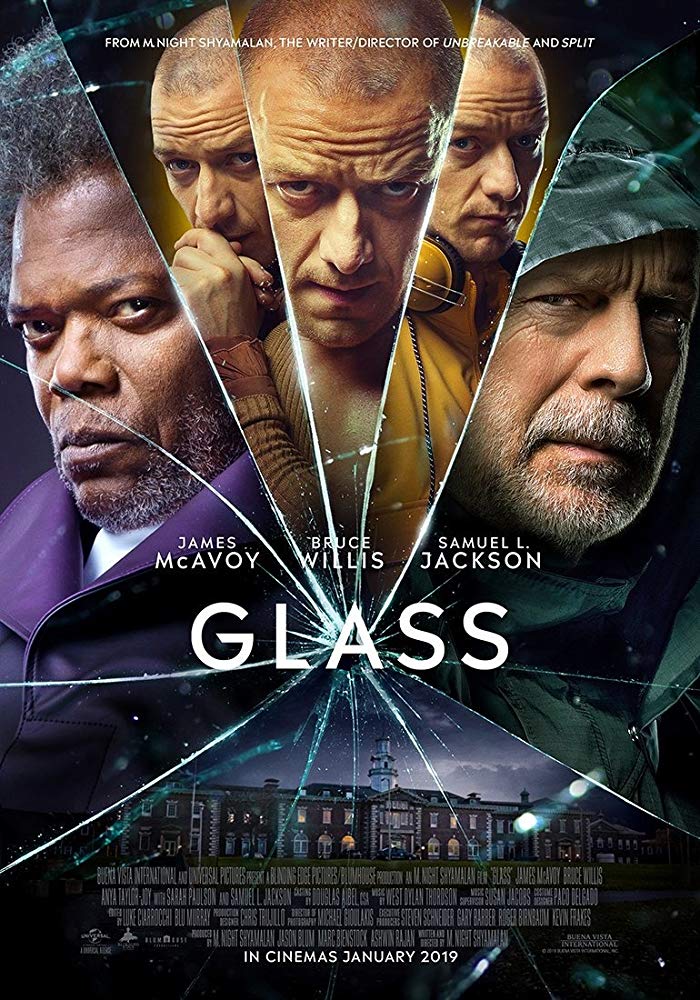
‘Glass’ Is Fun Yet Fragile [Review]
Solid
Glass is Grade-A M. Night Shyamalan with grandiose storytelling and a thrilling conclusion to an unexpected trilogy.

